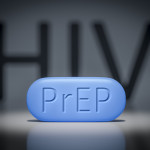 The first nationally representative poll of HIV-positive adults’ tobacco use has found that 42 percent of those in care are regular smokers, a rate twice that of the general population, the National AIDS Treatment Advocacy Project reports. Representatives from the Centers for Disease Control and Prevention (CDC) reported findings of their survey of HIV-positive people in care in 16 states and Puerto Rico at the 20th Conference on Retroviruses and Opportunistic Infections (CROI) in Atlanta. The 2009 survey, a part of the Medical Monitoring Project, included a cohort of 4,217 people living with HIV and was compared with a general-population sample of 27,731 adults from the National Health Interview Survey, conducted in the same year.
The first nationally representative poll of HIV-positive adults’ tobacco use has found that 42 percent of those in care are regular smokers, a rate twice that of the general population, the National AIDS Treatment Advocacy Project reports. Representatives from the Centers for Disease Control and Prevention (CDC) reported findings of their survey of HIV-positive people in care in 16 states and Puerto Rico at the 20th Conference on Retroviruses and Opportunistic Infections (CROI) in Atlanta. The 2009 survey, a part of the Medical Monitoring Project, included a cohort of 4,217 people living with HIV and was compared with a general-population sample of 27,731 adults from the National Health Interview Survey, conducted in the same year.
Among the HIV-positive group, 1,781 (42 percent) were current smokers, compared with 21 percent of the general population. A total of 37 percent of those with HIV and 58 percent of those without never smoked. After adjusting the data for variables including age, gender, race/ethnicity, education level and income, the CDC found that having HIV was generally associated with about a two-fold increase in the likelihood of smoking.
The study was limited by the fact that it only polled people in HIV care. An estimated 80 percent of the U.S. HIV population is aware of their infection, and only 30 to 41 percent are in regular HIV care. Furthermore, the study relied on self-report and was not backed up by laboratory tests to confirm smoking status.
A recent study found that HIV-positive smokers lost 12.3 years of life compared with non-smoking people with HIV.
The CDC advised that smoking cessation should be a priority for people in HIV care.
To read the NATAP report, click here.
Advertisement
Advertisement
Advertisement






Comments
Comments